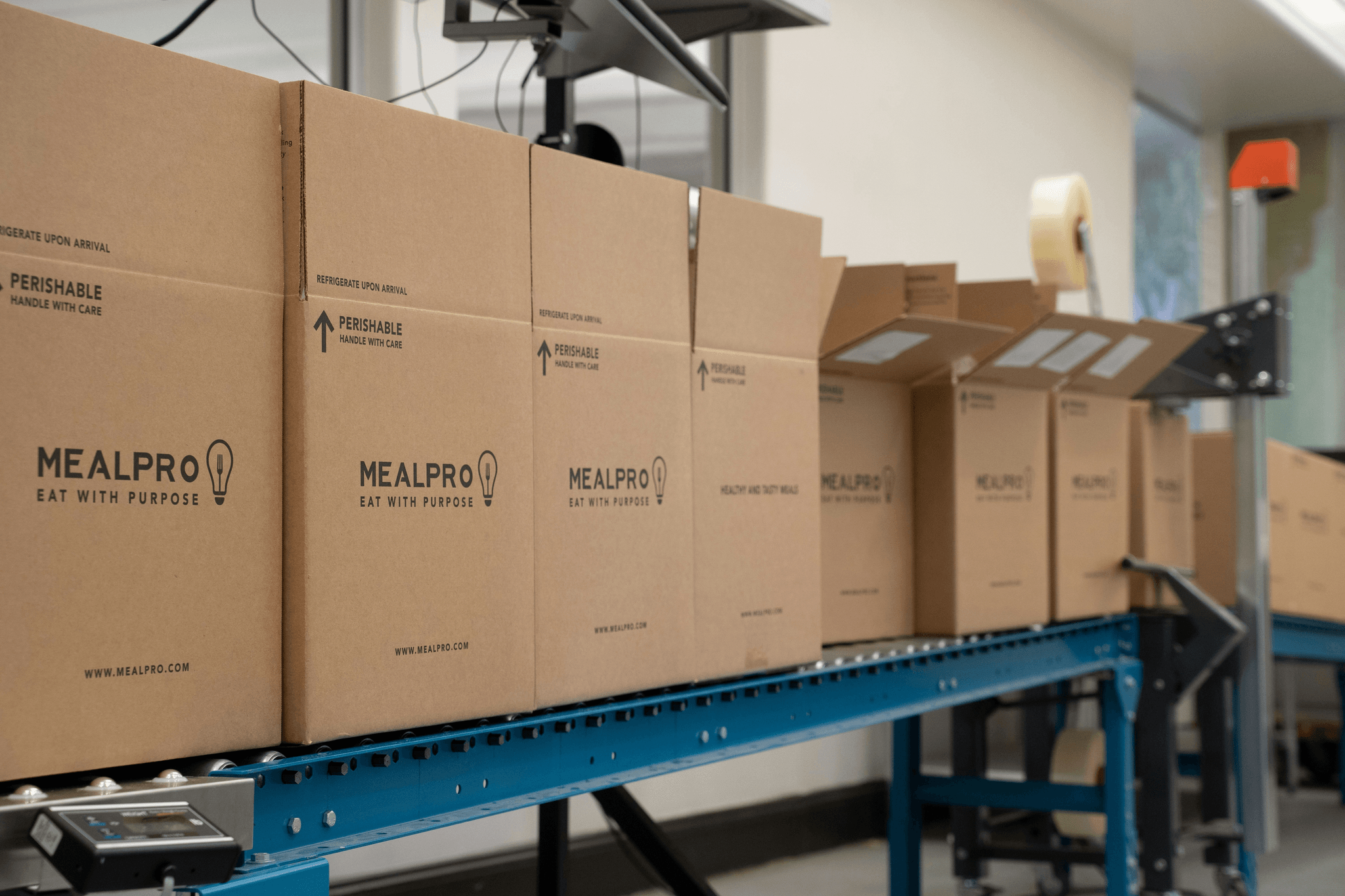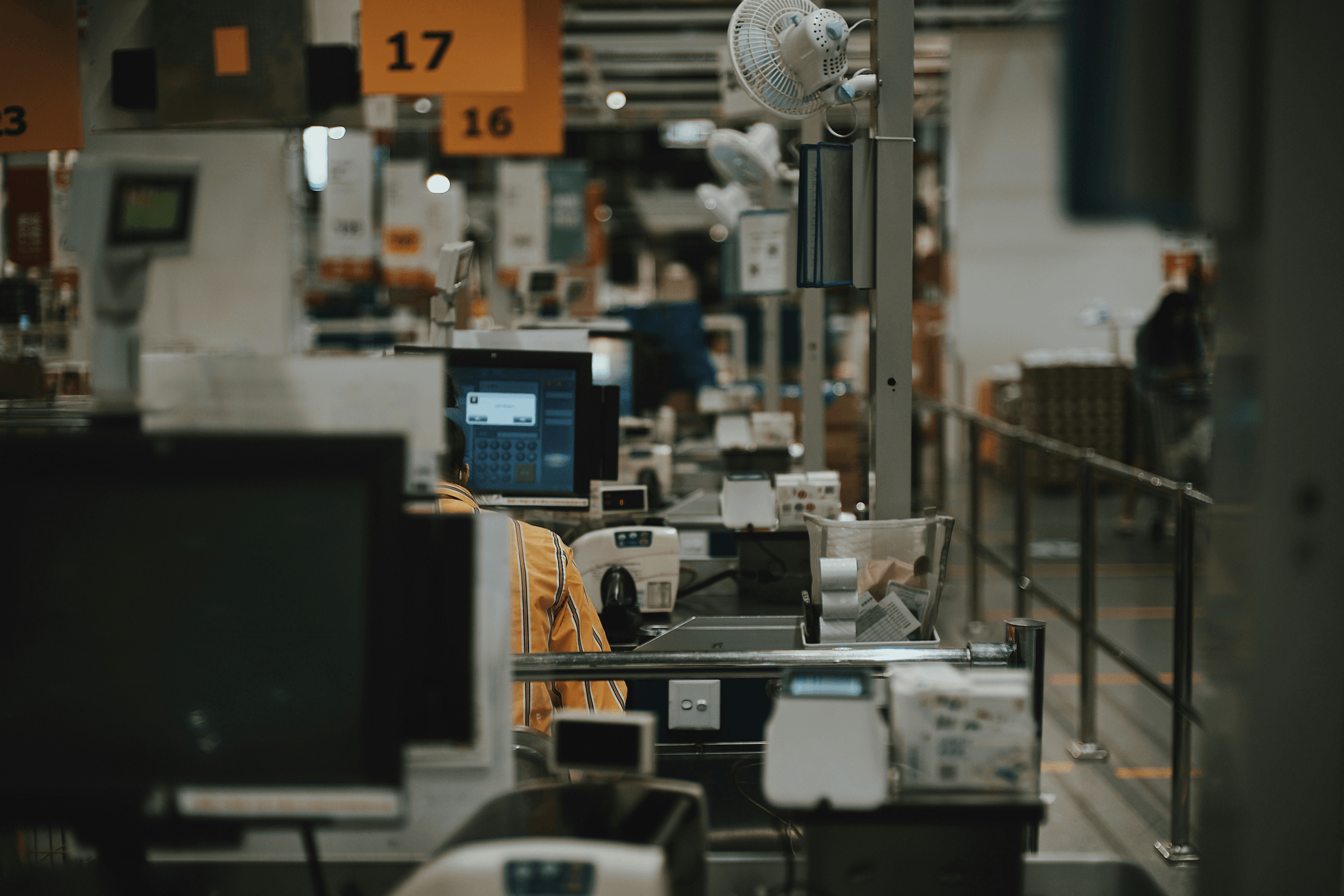Introduction
Navigating the vast marketplace of Alibaba can be a double-edged sword. While it offers countless opportunities for buyers and suppliers alike, the Alibaba scam landscape looms large, with potential pitfalls that can ensnare even the most vigilant shoppers. Understanding this environment is crucial for anyone looking to source products safely and effectively.
Understanding the Alibaba Scam Landscape
The allure of low prices and a wide array of products on Alibaba frequently attracts buyers from around the globe. However, behind these attractive listings often lie various scams that can lead to financial loss and frustration. By familiarizing yourself with the different types of scams prevalent on this platform, you can better prepare yourself to avoid falling victim.
The Importance of Supplier Verification
Supplier verification is not just a precaution; it's an absolute necessity when navigating Alibaba's marketplace. Ensuring that your supplier has valid Supplier Verification and Compliance Certificates significantly reduces risks associated with fraud. A thorough verification process helps establish trust, which is pivotal in any business transaction.
Common Red Flags to Watch For
When browsing through listings on Alibaba, being able to identify common red flags can save you from potential scams down the line. Look out for unusually low prices, vague product descriptions, or sellers who rush you into making a decision—these are often indicators of an impending scam. By sharpening your awareness regarding these warning signs, you’ll be well-equipped to protect yourself against fraudulent activities.
Supplier Verification and Compliance Certificates

In the bustling marketplace of Alibaba, the importance of Supplier Verification and Compliance Certificates cannot be overstated. With countless buyers navigating this platform daily, ensuring that suppliers are legitimate is essential for avoiding potential pitfalls like payment scams and non-delivery frauds. By prioritizing verification, you significantly reduce your risks and protect your investments.
Importance of Verification in Reducing Risks
Supplier verification serves as a crucial first line of defense against the myriad of Alibaba scams lurking in the shadows. It enables buyers to discern between trustworthy suppliers and those who may be looking to exploit unsuspecting customers. By investing time in verifying suppliers, you not only safeguard your finances but also enhance your overall buying experience on Alibaba.
How to Obtain Compliance Certificates
Obtaining compliance certificates is a straightforward yet vital process that can bolster your confidence in a supplier's legitimacy. Start by requesting relevant documents directly from the supplier, such as ISO certifications or product safety standards that align with your purchase requirements. Additionally, many manufacturers are more than willing to share these certificates if they know it will facilitate smoother transactions and build trust—after all, nobody wants an unhappy customer!
Tools for Authenticating Suppliers
To further streamline the process of authenticating suppliers on Alibaba, various tools are available at your disposal. Platforms like Alibaba's Trade Assurance offer buyer protection features that ensure funds are secure until goods are delivered as promised, minimizing exposure to payment scams and non-delivery frauds. Moreover, leveraging third-party verification services can provide an extra layer of assurance when performing thorough background checks on potential suppliers.
Identifying Common Scams on Alibaba

Navigating the bustling marketplace of Alibaba can feel like a treasure hunt, but beware—there are plenty of traps lurking in the shadows. From counterfeit products to dubious suppliers, identifying common scams on Alibaba is crucial for any savvy buyer. By understanding the types of scams and employing effective strategies, you can keep your purchasing experience safe and rewarding.
Types of Scams Buyers Encounter
The Alibaba scam landscape is diverse, with various types of scams that buyers frequently encounter. One common issue is “bait and switch,” where a supplier advertises one product but delivers something entirely different or subpar. Another prevalent scam involves fake suppliers who disappear after payment, leaving buyers with nothing but disappointment—a classic case of Payment Scams and Non-Delivery Frauds that can be avoided through diligent Supplier Verification and Compliance Certificates.
Additionally, some buyers fall victim to counterfeit goods masquerading as reputable brands, which not only affects quality control but also poses legal risks. It’s essential to stay vigilant against these deceptive practices while making purchases on Alibaba; after all, being informed about potential scams is half the battle won.
Real-Life Examples of Alibaba Scams
To truly grasp the dangers present in the marketplace, let’s take a look at some real-life examples of Alibaba scams that have made headlines. In one instance, a buyer ordered thousands of electronic devices only to receive empty boxes instead—an egregious example highlighting the importance of performing thorough background checks on suppliers before committing funds. Another case involved a company that paid for custom apparel only to discover that their supposed supplier had vanished into thin air after receiving payment.
These stories serve as cautionary tales for anyone looking to engage with suppliers on Alibaba without proper diligence. They underscore how critical it is to implement robust Quality Control and Risk Management measures throughout your purchasing process—from verifying supplier credentials to conducting pre-shipment inspections.
Tips for Spotting Suspicious Listings
Spotting suspicious listings can be an art form when navigating Alibaba's vast sea of products and suppliers. Start by scrutinizing supplier profiles; legitimate sellers often have extensive histories with positive reviews and verified compliance certificates prominently displayed. Look out for listings with overly attractive prices or vague product descriptions—these are red flags indicating potential scams lurking behind seemingly great deals.
Another helpful tip is to communicate directly with suppliers before making any commitments; ask specific questions about their products or services to gauge their responsiveness and professionalism. Engaging in this dialogue not only helps you assess their credibility but also reinforces your commitment to quality control through thorough investigation—a key aspect in avoiding those pesky Payment Scams and Non-Delivery Frauds.
Payment Scams and Non-Delivery Frauds

Common Payment Methods and Their Risks
Alibaba offers various payment methods, each with its own set of risks that can lead to potential scams. Common options include wire transfers, credit card payments, and Alibaba's Trade Assurance service. While credit cards may provide some level of buyer protection, wire transfers often lack recourse once the money is sent, making them a popular choice for scammers targeting unsuspecting buyers in the Alibaba scam landscape.
Another risk arises from using third-party payment services that may not have stringent fraud protections in place. Scammers can exploit these less secure options to disappear with your funds before you realize something is amiss. By familiarizing yourself with the nuances of each payment method, you can better navigate the treacherous waters of Identifying Common Scams on Alibaba.
Securing Transactions to Avoid Frauds
To minimize the risk of falling victim to payment scams on Alibaba, it’s crucial to take proactive measures when securing transactions. Always opt for secure payment methods like Alibaba's Trade Assurance or PayPal whenever possible; these services offer added layers of protection against fraud while allowing you to dispute charges if needed. Furthermore, ensure that you only engage with verified suppliers who have a solid track record—this ties back into Supplier Verification and Compliance Certificates.
Additionally, avoid making large upfront payments without establishing trust first; request small sample orders initially to gauge reliability before committing fully. Keeping communication transparent with suppliers also helps build rapport and encourages accountability in transactions—essential elements in Quality Control and Risk Management practices when dealing with overseas suppliers.
Protecting Yourself from Non-Delivery
Non-delivery frauds occur when buyers pay for goods but never receive them—a nightmare scenario that can easily happen if you're not vigilant enough during your purchasing process on platforms like Alibaba. To protect yourself from this type of scam, always insist on clear shipping terms outlined in your agreement with suppliers; this ensures both parties understand expectations regarding delivery timelines and conditions.
Performing thorough background checks on potential suppliers is another effective strategy against non-delivery frauds—investigate reviews or ratings from previous customers before proceeding with any transaction. Lastly, consider arranging a pre-shipment inspection or factory audit through a third-party service; this not only verifies product quality but also confirms that the supplier has actual goods ready for shipment—an invaluable step toward safeguarding against common scams associated with online purchasing.
Perform Thorough Background Checks

When diving into the world of Alibaba, performing thorough background checks is your best defense against the lurking dangers of an Alibaba scam. This essential step not only helps you verify suppliers but also ensures that you’re engaging with credible businesses. By investing time in this process, you can significantly reduce your risk of falling victim to scams and frauds.
Steps for Investigating Suppliers
Investigating suppliers on Alibaba involves a systematic approach that begins with gathering basic information about the company. Start by checking their business license and registration details, which can often be found on their Alibaba profile or through government databases. Additionally, look for customer reviews and ratings; high ratings are generally a good sign, but be wary of overly positive feedback that seems scripted—this could indicate manipulation.
Next, dig deeper by reaching out to past clients or requesting references from the supplier themselves. A reputable supplier should have no problem providing contact information for previous buyers who can vouch for their legitimacy. Finally, consider conducting a site visit if feasible; nothing beats seeing operations firsthand to identify potential red flags related to quality control and risk management.
Utilizing Online Resources and Reviews
In today’s digital age, online resources are invaluable when it comes to identifying common scams on Alibaba. Websites such as Trustpilot or SiteJabber offer user-generated reviews that can provide insights into other buyers' experiences with specific suppliers. Don’t overlook social media platforms either; they can serve as a treasure trove of information where disgruntled customers often voice concerns about payment scams and non-delivery frauds.
Moreover, specialized forums dedicated to e-commerce or international trade can be excellent sources of advice and warnings regarding specific suppliers on Alibaba. Engaging in these communities allows you to learn from others' mistakes while sharing your own experiences too—after all, knowledge is power! Remember that consistent negative feedback across multiple platforms is a major red flag; trust your instincts when something feels off.
Engaging Local Experts for Due Diligence
Sometimes the best way to perform thorough background checks is by enlisting local experts who understand the nuances of doing business in foreign markets like China. These professionals have local knowledge that can help uncover vital details about suppliers that may not be readily available online—think hidden costs or regulatory compliance issues related to Supplier Verification and Compliance Certificates. They might also have firsthand experience dealing with particular companies, providing an added layer of insight.
Additionally, local experts often possess valuable connections within industries that can aid in verifying the legitimacy of a supplier's claims about quality control standards or production capabilities. Whether it’s hiring an inspection service for pre-shipment audits or consulting with trade associations, tapping into local expertise enhances your due diligence process significantly against potential Alibaba scams. In short, don’t hesitate to invest in professional guidance; it could save you from costly mistakes down the line.
Quality Control and Risk Management

Navigating the murky waters of Alibaba can feel like a high-stakes game, especially when it comes to ensuring product quality and managing risks. Quality Control and Risk Management are not just buzzwords; they are essential practices that can save you from falling victim to an Alibaba scam. By setting rigorous standards, implementing effective strategies, and maintaining clear communication with suppliers, you can create a robust defense against potential pitfalls.
Setting Standards for Product Quality
Establishing clear standards for product quality is your first line of defense against the threat of scams on Alibaba. These standards should encompass everything from material specifications to manufacturing processes, ensuring that what you receive meets your expectations. By being explicit about what you want, you not only protect yourself but also facilitate better Supplier Verification and Compliance Certificates, making it easier to identify reputable suppliers.
When setting these standards, consider creating checklists or guidelines that outline acceptable quality metrics. This way, both you and the supplier have a mutual understanding of expectations right from the get-go. Remember, clarity is key in avoiding misunderstandings that could lead to disputes down the line.
Strategies for Managing Supplier Risks
Managing supplier risks involves more than just checking boxes; it's about being proactive rather than reactive in your approach. One effective strategy is to diversify your supplier base—don’t put all your eggs in one basket! This reduces dependency on a single source and mitigates risk if one supplier fails to deliver or turns out to be part of an Identifying Common Scams on Alibaba scenario.
Another essential strategy is regular communication with suppliers throughout the production process. Establishing checkpoints allows you to monitor progress closely while also addressing any concerns before they escalate into bigger issues like Payment Scams and Non-Delivery Frauds. Additionally, consider implementing performance reviews based on delivery timelines and product quality metrics; this will help keep suppliers accountable.
Importance of Communication and Transparency
Communication is often overlooked but plays a pivotal role in Quality Control and Risk Management when dealing with international suppliers on platforms like Alibaba. Open channels allow both parties to express concerns or clarify doubts without fear of misinterpretation—a common pitfall in cross-cultural exchanges that can lead directly into an Alibaba scam trap!
Transparency fosters trust between buyers and suppliers, which is essential for building long-term relationships that withstand scrutiny during Pre-Shipment Inspection and Factory Audit processes. When both sides are upfront about capabilities, limitations, and expectations regarding compliance certificates or other documentation requirements, you're less likely to encounter unpleasant surprises upon delivery.
In conclusion, investing time in setting quality standards, employing risk management strategies, and maintaining open lines of communication will significantly reduce your chances of falling prey to scams on Alibaba while enhancing overall buyer-supplier relationships.
Pre-Shipment Inspection and Factory Audit

When engaging with suppliers on platforms like Alibaba, pre-shipment inspections and factory audits are crucial steps in safeguarding your investment. These processes not only offer a glimpse into the quality of the products you'll receive but also help verify that the supplier is legitimate and compliant with industry standards. By understanding what to expect during these inspections, you can significantly reduce the risk of falling victim to an Alibaba scam.
What to Expect During Inspections
During a pre-shipment inspection, you can expect a thorough examination of your ordered goods before they leave the factory. Inspectors typically check for product specifications, quality standards, packaging details, and quantity verification. Additionally, they may assess compliance with Supplier Verification and Compliance Certificates to ensure that everything aligns with your expectations and legal requirements.
Factory audits take this a step further by evaluating the supplier's overall operations, including production capabilities, working conditions, and adherence to safety regulations. You should anticipate comprehensive reports detailing any discrepancies found during these evaluations. Such insights play a vital role in Identifying Common Scams on Alibaba by highlighting potential red flags before it’s too late.
How Audits Can Prevent Scams
Audits serve as an essential tool in preventing scams by providing buyers with an objective assessment of their suppliers' credibility and operational integrity. By conducting thorough checks on production practices and workplace environments, buyers can identify whether their chosen supplier is genuine or potentially involved in fraudulent activities like Payment Scams and Non-Delivery Frauds. The findings from these audits can empower buyers to make informed decisions regarding their purchasing engagements.
Moreover, when suppliers know they are subject to random audits or inspections, it often encourages them to maintain higher standards of quality control and ethical practices. This transparency fosters trust between buyers and suppliers while minimizing risks associated with poor-quality products or untrustworthy vendors. Ultimately, regular audits contribute significantly to Quality Control and Risk Management strategies that protect both parties involved in transactions.
Partnering with Third-Party Inspection Services
Engaging third-party inspection services is one of the most effective ways to ensure rigorous oversight throughout your supply chain process on Alibaba. These independent entities specialize in conducting pre-shipment inspections and factory audits tailored specifically for international trade scenarios—bringing expertise that you might lack as a buyer navigating foreign markets alone. Their impartial assessments provide an extra layer of security against potential scams.
When selecting a third-party service provider, it's essential to choose one with proven experience in your industry along with positive reviews from past clients who have successfully avoided Alibaba scams themselves through diligent inspections. Collaborating closely with such professionals not only enhances Supplier Verification but also establishes robust protocols for managing risks associated with overseas purchasing ventures effectively.
In conclusion, incorporating pre-shipment inspections and factory audits into your buying process is paramount for ensuring product quality while mitigating risks associated with scams on platforms like Alibaba. By being proactive about these measures—alongside performing thorough background checks—you empower yourself against pitfalls commonly faced by online buyers today.
Conclusion
In the fast-paced world of e-commerce, particularly on platforms like Alibaba, the risk of falling victim to an Alibaba scam is ever-present. However, by implementing best practices for safe buying, you can significantly reduce your chances of encountering fraudulent suppliers. From Supplier Verification and Compliance Certificates to thorough background checks, each step you take adds a layer of security to your purchasing process.
Implementing Best Practices for Safe Buying
To navigate the murky waters of online purchasing, it’s essential to adopt best practices that prioritize safety and reliability. Start with Supplier Verification and Compliance Certificates; ensuring that suppliers are legitimate can save you from potential headaches down the line. Additionally, always be on the lookout for Identifying Common Scams on Alibaba—knowledge is power when it comes to avoiding pitfalls.
Moreover, when making payments, be cautious about Payment Scams and Non-Delivery Frauds; using secure payment methods can protect your hard-earned money. Regularly perform thorough background checks on suppliers by utilizing online resources and reviews to gauge their credibility. Lastly, integrating Quality Control and Risk Management strategies will help ensure that you're not only getting what you pay for but also maintaining a high standard in your purchases.
The Role of AC&E in Ensuring Compliance
Organizations like AC&E play a crucial role in ensuring compliance within the Alibaba marketplace by providing valuable resources and guidelines for buyers. They assist in educating users about Supplier Verification and Compliance Certificates while also offering tools to identify common scams effectively. By engaging with AC&E’s services, buyers can stay informed about potential risks associated with transactions on Alibaba.
Furthermore, AC&E promotes best practices around Pre-Shipment Inspection and Factory Audit processes that help mitigate risks before products reach your doorstep. Their expertise ensures that buyers are well-equipped to deal with any uncertainties related to supplier reliability or product quality issues. In essence, leveraging AC&E's resources empowers you as a buyer to make informed decisions while navigating through the complexities of international trade.
Empowering Yourself Against Alibaba Scams
Empowerment starts with knowledge—understanding how scams operate is key in avoiding them altogether. Familiarize yourself with common tactics used by fraudsters through Identifying Common Scams on Alibaba so you can recognize red flags early on in your buying journey. By staying vigilant and applying lessons learned from past experiences—such as those involving Payment Scams and Non-Delivery Frauds—you'll be better prepared against potential threats.
Moreover, consider conducting regular Quality Control and Risk Management assessments throughout your buying process; this proactive approach allows you to address issues before they escalate into major problems later down the line. Engaging in Pre-Shipment Inspection and Factory Audit not only reassures product quality but also fosters trust between buyers and suppliers—a crucial element in any successful transaction.
In summary, arming yourself against Alibaba scams requires diligence at every stage—from verifying suppliers right through to post-purchase inspections—ensuring you're always one step ahead of potential fraudsters.
